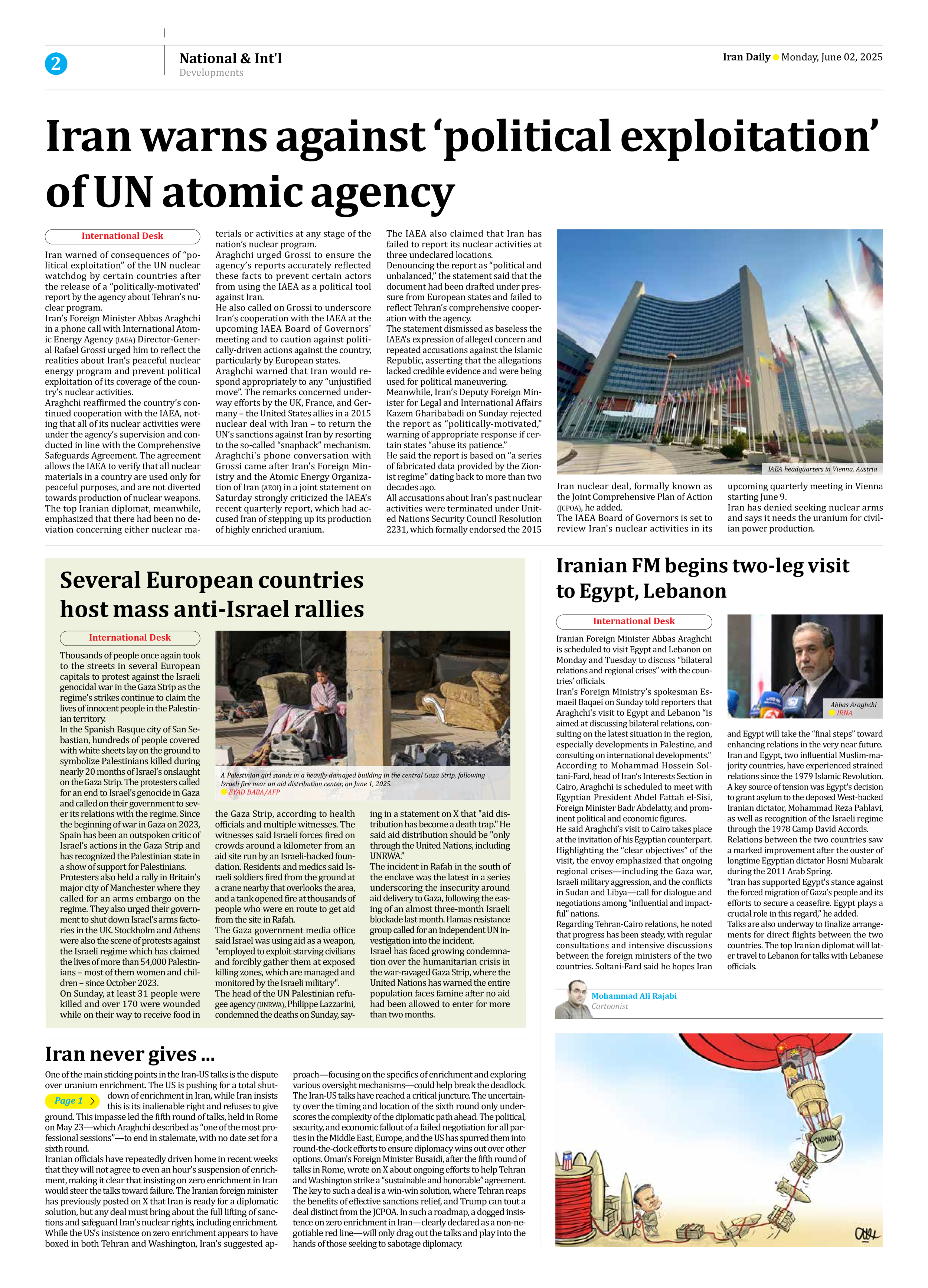
Iran warns against ‘political exploitation’ of UN atomic agency
Iran warned of consequences of “political exploitation” of the UN nuclear watchdog by certain countries after the release of a “politically-motivated’ report by the agency about Tehran’s nuclear program.
Iran’s Foreign Minister Abbas Araghchi in a phone call with International Atomic Energy Agency (IAEA) Director-General Rafael Grossi urged him to reflect the realities about Iran’s peaceful nuclear energy program and prevent political exploitation of its coverage of the country’s nuclear activities.
Araghchi reaffirmed the country’s continued cooperation with the IAEA, noting that all of its nuclear activities were under the agency’s supervision and conducted in line with the Comprehensive Safeguards Agreement. The agreement allows the IAEA to verify that all nuclear materials in a country are used only for peaceful purposes, and are not diverted towards production of nuclear weapons.
The top Iranian diplomat, meanwhile, emphasized that there had been no deviation concerning either nuclear materials or activities at any stage of the nation’s nuclear program.
Araghchi urged Grossi to ensure the agency’s reports accurately reflected these facts to prevent certain actors from using the IAEA as a political tool against Iran.
He also called on Grossi to underscore Iran’s cooperation with the IAEA at the upcoming IAEA Board of Governors' meeting and to caution against politically-driven actions against the country, particularly by European states.
Araghchi warned that Iran would respond appropriately to any “unjustified move”. The remarks concerned underway efforts by the UK, France, and Germany – the United States allies in a 2015 nuclear deal with Iran – to return the UN’s sanctions against Iran by resorting to the so-called “snapback” mechanism.
Araghchi's phone conversation with Grossi came after Iran’s Foreign Ministry and the Atomic Energy Organization of Iran (AEOI) in a joint statement on Saturday strongly criticized the IAEA’s recent quarterly report, which had accused Iran of stepping up its production of highly enriched uranium.
The IAEA also claimed that Iran has failed to report its nuclear activities at three undeclared locations.
Denouncing the report as “political and unbalanced,” the statement said that the document had been drafted under pressure from European states and failed to reflect Tehran’s comprehensive cooperation with the agency.
The statement dismissed as baseless the IAEA’s expression of alleged concern and repeated accusations against the Islamic Republic, asserting that the allegations lacked credible evidence and were being used for political maneuvering.
Meanwhile, Iran’s Deputy Foreign Minister for Legal and International Affairs Kazem Gharibabadi on Sunday rejected the report as “politically-motivated,” warning of appropriate response if certain states “abuse its patience.”
He said the report is based on “a series of fabricated data provided by the Zionist regime” dating back to more than two decades ago.
All accusations about Iran’s past nuclear activities were terminated under United Nations Security Council Resolution 2231, which formally endorsed the 2015 Iran nuclear deal, formally known as the Joint Comprehensive Plan of Action (JCPOA), he added.
The IAEA Board of Governors is set to review Iran's nuclear activities in its upcoming quarterly meeting in Vienna starting June 9.
Iran has denied seeking nuclear arms and says it needs the uranium for civilian power production.







